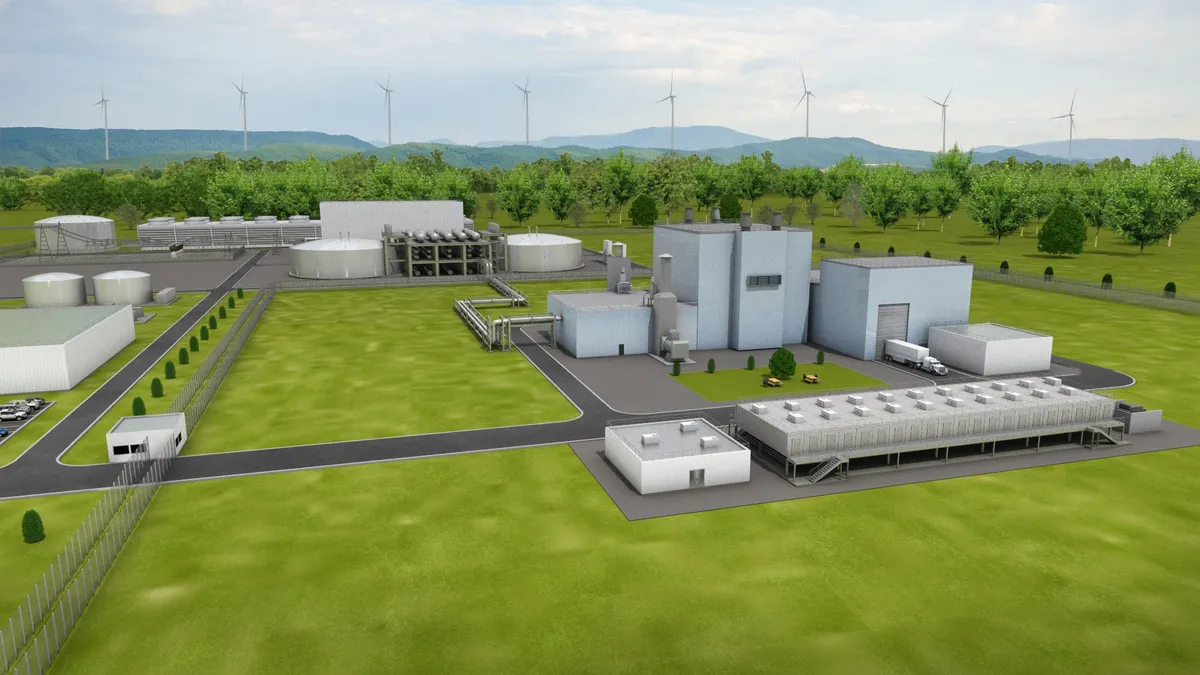Dive Brief:
- Three U.S. senators, including the two leaders of the Senate’s Energy and Natural Resources Committee, have introduced bipartisan legislation directing the U.S. Department of Energy to establish a nuclear fuel program to strengthen domestic production.
- The legislation would make a priority of increasing U.S. production of low-enriched uranium and accelerating efforts to establish a high-assay, low-enriched uranium, or HALEU, capability. Lawmakers want to ensure that a disruption in Russian uranium supply would not affect the development of advanced reactors or operation of the U.S. light-water reactor fleet.
- U.S. energy security and independence are “impossible when we continue to rely on Russia and Vladimir Putin for the uranium we need to power our nuclear reactors,” Sen. Joe Manchin, D-W.Va., chairman of the Senate Energy and Natural Resources Committee, said in a statement. With Russia’s war against Ukraine entering its second year, “now is the time to take a hard look at how we source the raw materials necessary to power our nation and develop advanced energy technologies,” he said.
Dive Insight:
Manchin, Sen. John Barrasso of Wyoming, the committee’s top Republican, and Sen. Jim Risch, R-Idaho, on Feb. 15 introduced the Nuclear Fuel Security Act.
Barrasso said a planned 345-MWe sodium-cooled TerraPower Natrium demonstration nuclear reactor in Kemmerer, Wyoming, would benefit from the legislation. He has previously introduced legislation intended to boost domestic supplies of HALEU and has urged the DOE to do so administratively.
Interruptions in fuel due to the war have delayed for at least two years completion of the Wyoming reactor. Chris Levesque, president and CEO, told investors in December that domestic and allied manufacturing of HALEU, “will not reach commercial capacity in time to meet the proposed 2028 in-service date for the Natrium demonstration plant.”
DOE is spending nearly $2 billion to support licensing, building and demonstration of the reactor, which will be built near a coal plant to be retired.
In January, Manchin and Microsoft co-founder Bill Gates, founder and chairman of TerraPower, toured a coal-fired power plant in Kanawha County, West Virginia, as the potential site of a small nuclear reactor.
If domestic enrichment is not commercially available at the scale needed in time to meet the needs of advanced nuclear reactor demonstration projects, the secretary of energy shall consider making available HALEU produced from inventories owned by the agency.
The legislation also directs all options to be explored with countries that are allies or partners of the United States, to expand nuclear materials available to the U.S.
The secretary of energy would be required to enter into contracts to begin acquiring at least 100 metric tons a year of low-enriched uranium by the end of 2026 or earlier. And DOE would be required by the legislation, if enacted into law, to enter contracts with members of a consortium – nuclear energy companies and nations – to begin acquiring at least 20 metric tons a year of HALEU by the end of 2027 or earlier from U.S. nuclear energy companies.
DOE announced in December it established a HALEU Consortium to help secure a domestic supply of the material needed to develop and deploy advanced reactors in the United States. Membership is free and open to any U.S. entity involved in the nuclear fuel cycle, DOE said. The agency also may accept requests for membership from entities in ally or partner nations.
The legislation bars DOE from disrupting or replacing market mechanisms by competing with U.S. nuclear energy companies.














